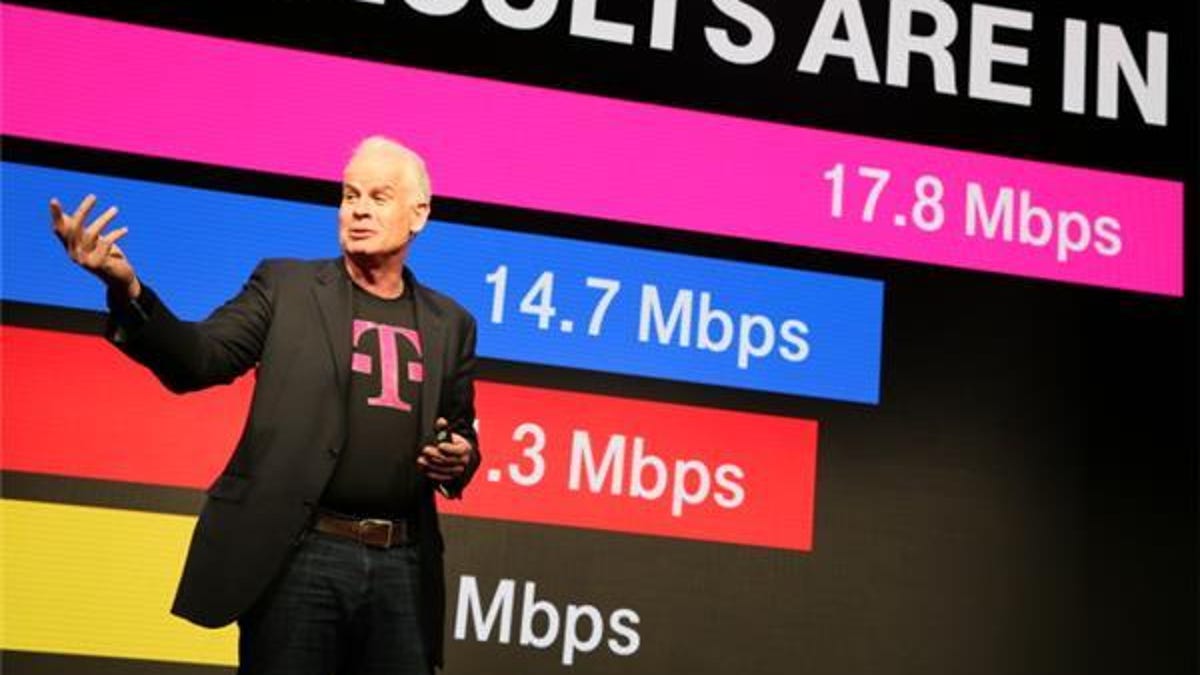T-Mobile to upgrade 2G network to 4G LTE, takes on Verizon
T-Mobile said it was taking legal action to stop Verizon from using its LTE coverage maps in ads, calling them misleading.

T-Mobile isn't slowing down when it comes to its network upgrade.
The upstart wireless carrier said on Thursday that it plans to add 4G LTE to its slower 2G network, adding coverage and speed to additional customers. The company also reiterated its intent to use the wireless spectrum it is acquiring from Verizon to further expand its coverage later this year.
Oddly enough, T-Mobile also said it was taking legal action against Verizon in an effort to get it to stop using its network coverage map in its advertising, which T-Mobile argues is "cherry-picking" a single technology (LTE) to illustrate its superiority. T-Mobile has long claimed broader 4G coverage than what is depicted because it also factors its larger 4G HSPA+ network.
"Verizon's ink blots massively understate our coverage and don't begin to represent the actual customer experience on T-Mobile's network," CEO John Legere said in a statement.
Verizon, for its part, hasn't seen a lawsuit and won't comment directly on it.
"We prefer to compete in the marketplace, not in the courts. Our customers know what a true nationwide 4G LTE network experience feels like, map or not," said a Verizon representative.
At a time when network speed and coverage has never been more important, T-Mobile has made a lot of noise about the speed of both its deployment and its 4G LTE service. Based on data from Speedtest.net, it lays claim to the fastest network, although its coverage is still far behind that of AT&T and Verizon. Still, the bulked up network and an array of aggressive offers have customers flocking back to T-Mobile.
T-Mobile, meanwhile, is hoping to address one the biggest deficiencies with the service -- the lack of breadth of coverage. The carrier has argued that it is fastest where it matters the most -- crowded cities with millions of people. But go beyond the major markets, and the coverage is far less reliable.
By overlaying the faster LTE network over its slower 2G "Edge" network, it hopes to bring its speedier connection to more people. T-Mobile said it plans to complete half of the upgrade by this year, with the rest finished by the middle of next year. A CNET representative confirmed that the 2G network would not go away.
Further allowing it to expand its coverage is the swath of 700 megahertz spectrum it is in the process of buying from Verizon. The spectrum is considered valuable because it runs at a lower bandwidth, allowing it to spread over greater distances and still provide coverage. Verizon and AT&T, for instance, have both built out their LTE networks over the same kind of spectrum.
T-Mobile plans to cover 230 million people across the US by the middle of the year, and cover 250 million by the end of 2014.
Updated at 9:01 a.m. PT: To include a response from Verizon.

